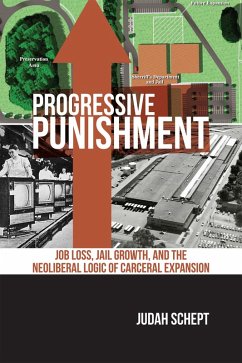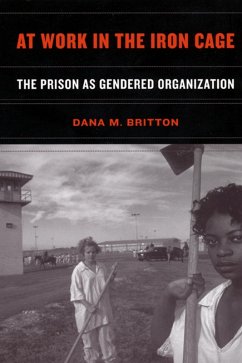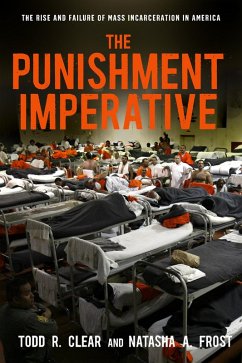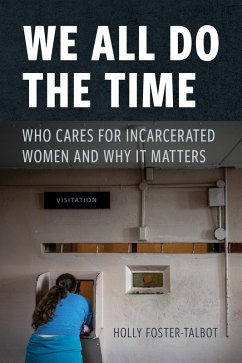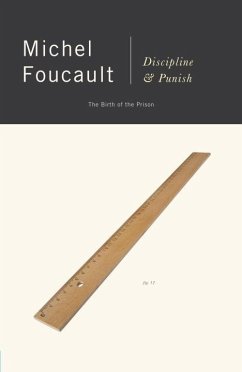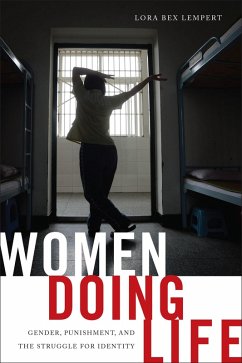
The Culture of Punishment (eBook, ePUB)
Prison, Society, and Spectacle
Versandkostenfrei!
Sofort per Download lieferbar
23,95 €
inkl. MwSt.
Weitere Ausgaben:

PAYBACK Punkte
12 °P sammeln!
America is the most punitive nation in the world, incarcerating more than 2.3 million peopleor one in 136 of its residents. Against the backdrop of this unprecedented mass imprisonment, punishment permeates everyday life, carrying with it complex cultural meanings. In The Culture of Punishment, Michelle Brown goes beyond prison gates and into the routine and popular engagements of everyday life, showing that those of us most distanced from the practice of punishment tend to be particularly harsh in our judgments.The Culture of Punishment takes readers on a tour of the sites where culture and p...
America is the most punitive nation in the world, incarcerating more than 2.3 million peopleor one in 136 of its residents. Against the backdrop of this unprecedented mass imprisonment, punishment permeates everyday life, carrying with it complex cultural meanings. In The Culture of Punishment, Michelle Brown goes beyond prison gates and into the routine and popular engagements of everyday life, showing that those of us most distanced from the practice of punishment tend to be particularly harsh in our judgments.
The Culture of Punishment takes readers on a tour of the sites where culture and punishment meettelevision shows, movies, prison tourism, and post 9/11 new war prisonsdemonstrating that because incarceration affects people along distinct race and class lines, it is only a privileged group of citizens who are removed from the experience of incarceration. These penal spectators, who often sanction the infliction of pain from a distance, risk overlooking the reasons for democratic oversight of the project of punishment and, more broadly, justifications for the prohibition of pain.
The Culture of Punishment takes readers on a tour of the sites where culture and punishment meettelevision shows, movies, prison tourism, and post 9/11 new war prisonsdemonstrating that because incarceration affects people along distinct race and class lines, it is only a privileged group of citizens who are removed from the experience of incarceration. These penal spectators, who often sanction the infliction of pain from a distance, risk overlooking the reasons for democratic oversight of the project of punishment and, more broadly, justifications for the prohibition of pain.
Dieser Download kann aus rechtlichen Gründen nur mit Rechnungsadresse in A, D ausgeliefert werden.




